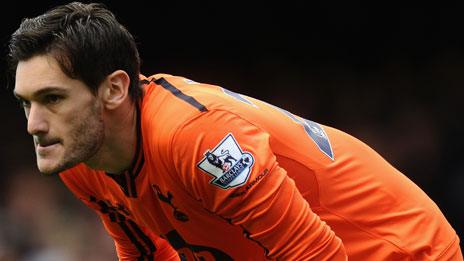NCAA offers settlement in athlete concussion cases
- Published
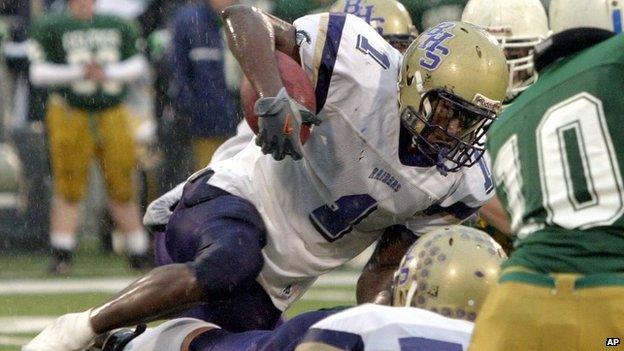
Adrian Arrington (shown here in a high school game), said the effects of concussions during time as a university player have made it difficult to work or even care for his children
The US collegiate sport authority has offered to settle 10 lawsuits by former athletes who suffered concussions with a $70m (£41.3m) medical fund.
The money from the National Collegiate Athletic Association would be used to test and diagnose current and former athletes who played within the past 50 years for the effects of head trauma.
It would also tighten rules on returning to play after a concussion.
Growing awareness of the danger of head trauma has roiled US sport recently.
Thousands of players
Earlier in July, the National Football League (NFL) proposed to set aside more than $675m to compensate ex-players who had suffered long-term damage after playing the sport. A judge in that case has granted preliminary approval to the settlement.
And in January, President Barack Obama said if he had a son, he would not let him play professional American football.
Under the terms of the settlement proposed on Tuesday, external, amateur "student-athletes" on collegiate and university teams will retain the ability to sue individually for compensation.
The sports covered under the settlement, which must be approved by a federal judge, include American football, men's and women's hockey, football, and other contact sports
Tens of thousands of current and former students are expected to qualify for physical and neurological testing.
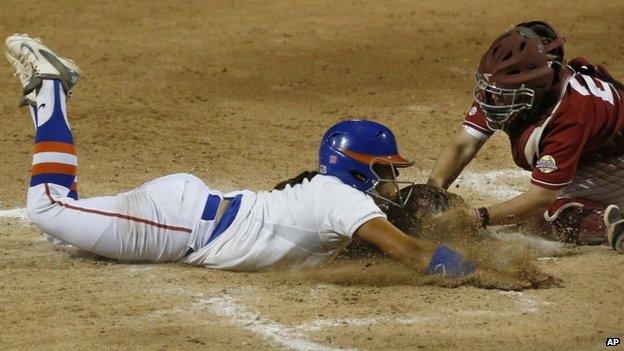
While many athletes named in the combined lawsuits were American football players, the settlement will affect return-to-play policies for all university sport, including women's softball
A lawyer for the players suing the NCAA, Joseph Siprut, said the year-long negotiations would make college sport somewhat safer.
"I wouldn't say these changes solve the safety problems, but they do reduce the risks," he told the Associated Press news agency. "It's changed college sports forever."
Seizures, depression
Mr Siprut also hailed the stricter return-to-play rules proposed under the settlement, which include banning athletes from returning to play or practice on the same day they are diagnosed with a concussion.
"Changes were necessary to preserve the talent well of kids that feeds the game of football," he said. "Absent these kinds of changes, the sport will die."
Also under the settlement, the NCAA athletes will undergo baseline neurological testing at the beginning of the year to track the effects of concussions and other injuries on the brain.
The settlement includes no admission of wrongdoing by the NCAA.
Among the plaintiffs are dozens of athletes who say they suffered brain trauma, including the lead plaintiff, Adrian Arrington, an ex-American football player at Eastern Illinois University.
Mr Arrington endured five concussions during his time at Eastern Illinois, some so severe he could not recognise his parents afterwards.
Court records said Mr Arrington suffered memory loss, seizures and debilitating depression after the concussions.
- Published7 July 2014
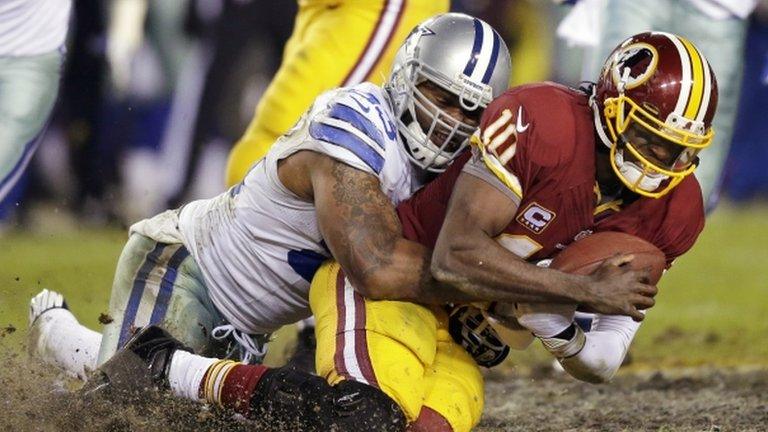
- Published13 September 2012
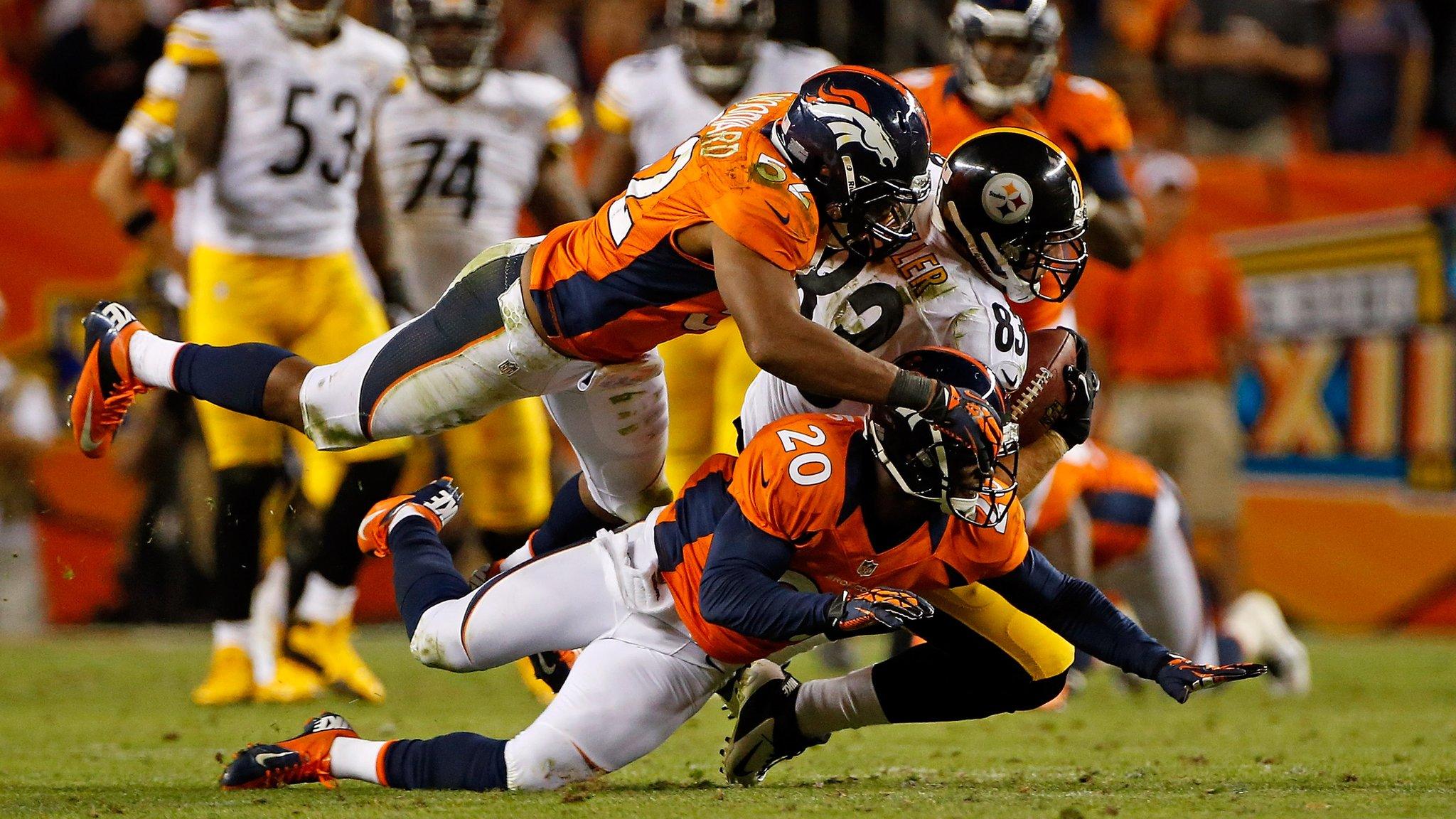
- Published4 November 2013
